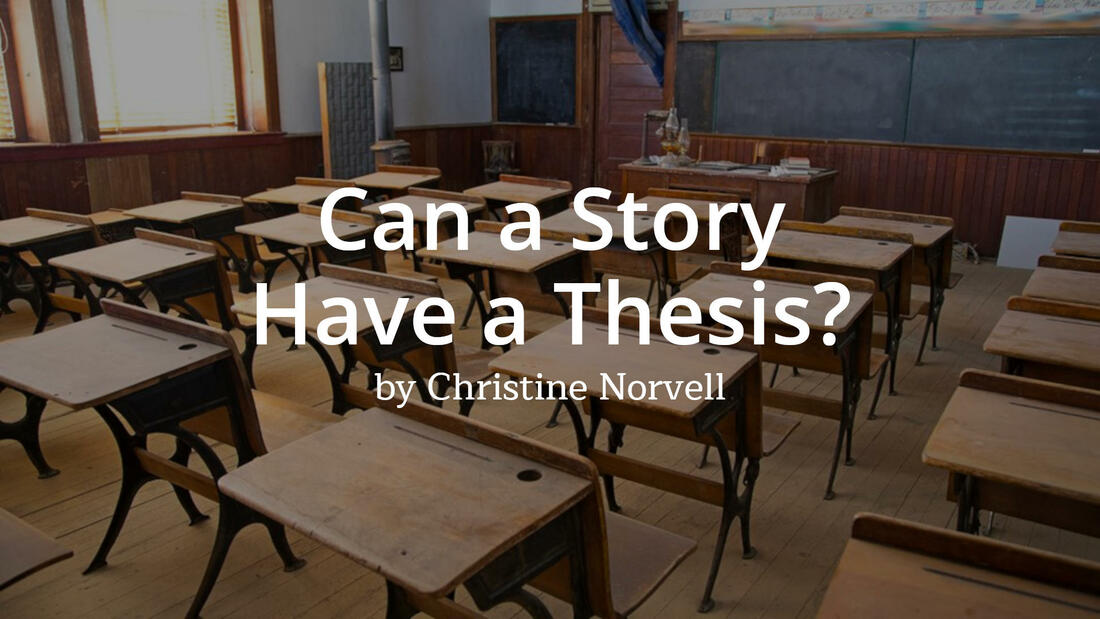|
MY STUDENTS ARE CERTAIN that the word thesis applies only to nonfiction. That is after all the only way they have ever personally used it. In essays. In speeches. In formal rhetoric classes. But the word itself has no such limitation. In ancient Greek, the word means to physically place a proposition statement, to place it with intention. In logic, further etymology explains it was recorded in the 1570s as a formulation in advance of a proposition to be proved and only later in the 1650s did it come to mean a fully written speech as a dissertation presented by a candidate for a university degree. (1) Though the word itself can mean a sentence or a paper or a speech, I would like to speak of it as a seminal sentence, the one thought (or close to one) that is the seed, the pith, of a story or novel. It’s not something we the readers create. It’s a sentence the author wrote. So how do we find that sentence? Or I could better ask, how do we recognize it? I offer some questions to help:
My best examples come from Norman Maclean’s novella, A River Runs through It, because there are many sentences that capture the novel. And that’s the fun of analysis. As readers who have experienced the story, we get to choose. Do we go with the poetic, like the first sentence which holds true for the entire story? Maclean writes, “In our family, there was no clear line between religion and fly fishing.” But what of the last pages? After experiencing the grand Elkhorn Canyon and so many beautiful moments on the Big Blackfoot River, we read, “A river, though, has so many things to say that it is hard to know what it says to each of us.” And Maclean’s final words ring with beauty— Then in the Arctic half-light of the canyon, all existence fades to a being with my soul and memories and the sounds of the Big Blackfoot River and a four-count rhythm and the hope that a fish will rise. Or could that pith of a sentence be a philosophy like the curiosity theory mentioned by Maclean? Does it apply to fishing and life? “It is the theory that fish, like men, will sometimes strike at things just to find out what they are and not because they look good to eat.”
Or could we choose the theme of help when Norman offers his brother help after posting bond to get him out of jail? A few pages later, ironically, Paul asks if Norman should “help” his brother-in-law, “But maybe what he likes is somebody trying to help him.” How true for the brothers themselves. Norman’s wife Jessie says, “Why is it that people who want help do better without it—at least, no worse.” But then his father defines it— “Help is giving part of yourself to somebody who comes to accept it willingly and needs it badly. So it is...that we can seldom help anybody. Either we don’t know what part to give or maybe we don’t like to give any part of ourselves.” He comments that perhaps it is just being willing to help that counts. From the many angles of an angler, we see that a story can flow with many thesis sentences. But I would also add this caution. A story can't be interpreted in dozens of ways. It shouldn't be. It can't just mean what you want it to mean. We rely on the author's words because he does have intent. The living words of a story have a soul, and that is the sentence I look for. 1. Douglas Harper, Online Etymology Dictionary. Comments are closed.
|


 RSS Feed
RSS Feed